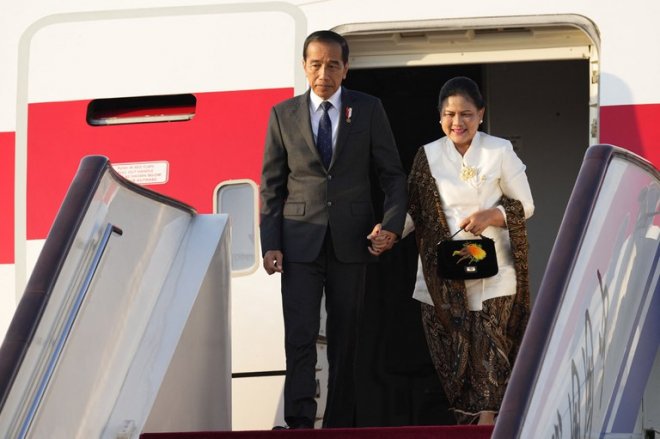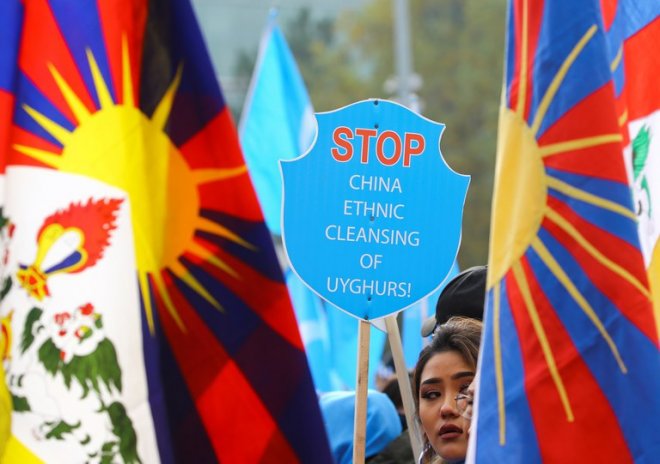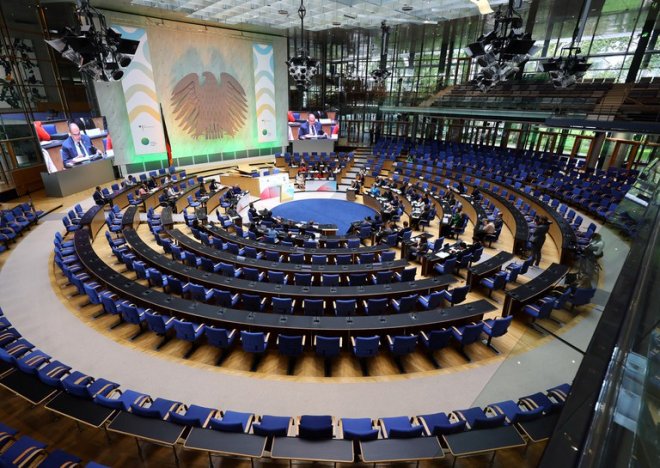Cambodian police summon NGOs over banned music video
Police in Cambodia have summoned representatives from major humanitarian organizations for posting the now-banned “Blood Workers” music video on their social media accounts.Last week, Cambodia’s culture ministry ordered police to prevent the spread of the music video, which recounts a deadly government crackdown on a workers’ protest nine years ago. The video by rapper Kea Sokun shows footage of the Jan. 3, 2014, protests in Phnom Penh during which police shot four people dead and wounded nearly 40 others.
On Tuesday, police summoned Moeun Tola, Executive Director of the Center for Alliance of Labour and Human Rights, or CENTRAL, and Vorn Pov, President of the Independent and Democracy of Information Economic Association, or IDEA, over their group"s social media posts.
Previously, police had also summoned Am Sam Ath of the Cambodian League for the Promotion and Defense of Human Rights, or LICADHO, for a meeting on Monday, and he already removed the group’s posting to avoid further legal action.
Moeun Tola said the summons gave him a chance to explain his group’s reasoning for posting the music video, saying he told police that his group posted the song to commemorate the anniversary and urged the authorities to investigate the violent crackdown. He added that CENTRAL did not intend to provoke social disorder as alleged by the Ministry of Culture.
‘It is sad’
Despite the explanation, police ordered Moeun Tola to remove the post to avoid any further legal action, and CENTRAL has taken it down since. Vorn Pov also said that his NGO agreed to remove the posting as demanded by the police.
“We are living in this situation. We don"t want any trouble so we decided to remove the posting from our Facebook page,” he said.
Despite removing the post, Am Sam Ath said LICADHO has continued to stand by the NGOs right to post the music video, saying there was no evidence it incited unrest or affected social security as authorities claim.
“It is sad,” Am Sam Ath said about the removal of the post.
RFA couldn’t reach Phnom Penh Municipality Police Spokesman San Sok Seiha for comment. But Rong Chhun, president of the independent Cambodian Confederation of Unions, criticized the police’s process, saying that it was a threat against NGOs and their rights in the country.
“The government shouldn’t be worried about the postings too much. NGOs have no choice but to remove the postings for safety and avoid any legal consequences. As a result, any future expression through songs will be restricted,” he said.
Rapper concerned about his safety
Meanwhile, the rapper Kea Sokun, who created the “Blood Workers” song, told RFA Saturday that he is concerned about his security but he denied any intention to cause harm.
"I suggest [police] re-examine my song"s content and if it is inciteful then they can detain me. I will clarify," he said.
RFA doesn"t know Kea Sokun"s whereabouts at this time. Lastly, police also summoned Coalition of Cambodian Farmers Community President Teng Savoeun for a meeting on Jan. 11, but their post of the song seemed to already have been removed.
“For the past nine years they have been left with pain and sorrow and sadness by gestures full of blood,” Kea Sokun raps in the song, according to a translation by local independent media outlet VOD.
“There is no information and they do not know where they have drifted away,” he continues. “There is no one who knows, and they have been waiting for justice for the past nine years, waiting so long but there is no one held responsible.”
Last week, Cambodia’s Culture Minister Phoeurng Sackona sent a letter to Police Chief Neth Savoeun, and asked that he take steps to prevent the spread of “Blood Workers” on social media, citing its “inciting contents that can contribute to instability and social disorder.”
Translated by Samean Yun. Edited by Nawar Nemeh and Malcolm Foster.
[圖擷取自網路,如有疑問請私訊]
|
本篇 |
不想錯過? 請追蹤FB專頁! |
| 喜歡這篇嗎?快分享吧! |
相關文章
AsianNewsCast























